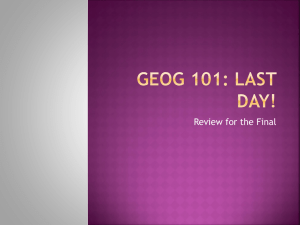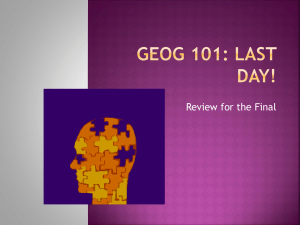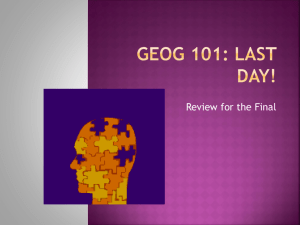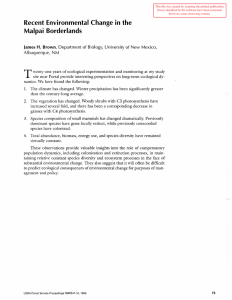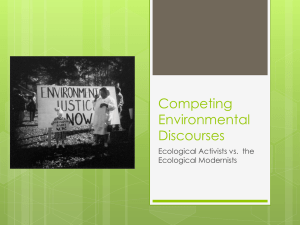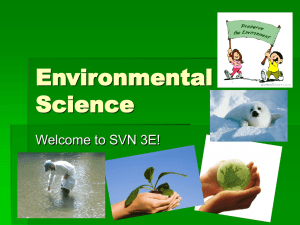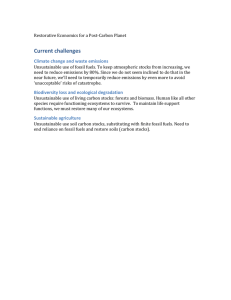Day 26
advertisement
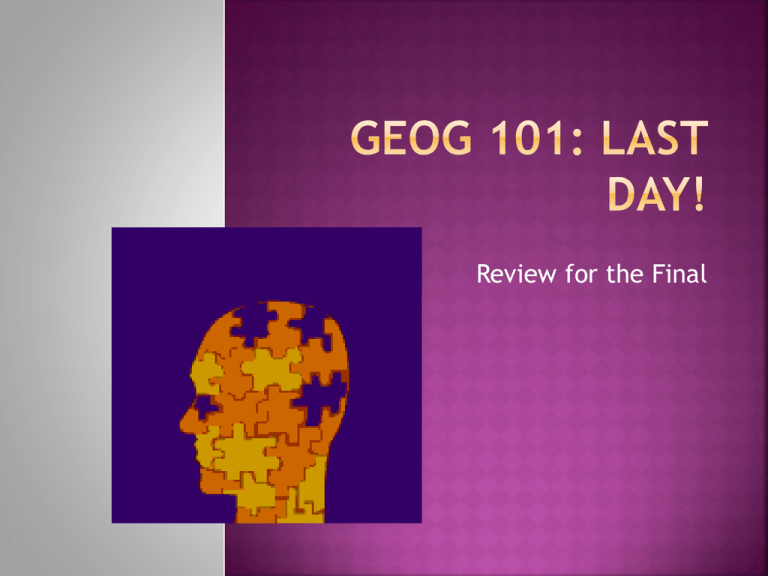
Review for the Final You’ve been a great group… I’m going to miss you. Courtesy of a former student: http://news.sky.com/story/1377035/poo-power-busruns-on-gas-from-human-waste Courtesy of a former student: Proposals for cleaning up the Great Pacific Garbage Patch: http://www.theoceancleanup.com/ Woman who has lived trash-free for two years: http://www.collectiveevolution.com/2014/11/23/she-hasntmade-any-trash-in-2-years-this-is-what-herlife-is-like/ The final is in Building 250, Room 125 on Friday the 24th from 1 to 4. Be there on time; there will be another class in there at the same time. The exam will be a mix of short answers and essay questions, with a sprinkling of multiple choice and true-false. The weighting will be on the short answers and essays. For these, the answers will be evaluated based on how thoroughly you answer the questions (I will indicate minimum lengths), on how coherently and well-structured your answers are, the originality of your analysis where that is called for and, to a much less degree, on the quality and legibility of your hand-writing. The exam will cover the material from Chapters 12 to 23, even those that were not covered extensively in class, and to a lesser degree key concept from the first couple of weeks. Key concepts like: carrying capacity, limits to growth, ecological footprint, full world, feedback cycles (positive and negative, and examples of each), environmental science and environmental geography, scientific method, ecosystems, demographic transition. Difference between environmental scientists and environmentalists. The sources of air pollution in different parts of the world and its effects. The nature and sources of climate change, why it is a major threat, and how it ties in with a system of feedback loops. What caused the ozone layer to thin out. Different kinds of fossil fuels, their benefits and impacts. The concept of peak oil. Alternative conventional fuels, both fossil and others. Renewable forms of energy, and their strengths and limitations. The nature of the waste stream in Canada and the U.S. and what can and is being done about it. Four kinds of environmental hazards. Ways in which Canada and the U.S. profit from exporting products they themselves have banned. Why cities are both part of the problem of sustainability and potentially part of the solution. Definition and origin of urban sprawl. What the movements ‘smart growth’ and ‘new urbanism’ are about. Why moving away from automobile dependence towards other forms of transportation and mixed land use is so crucial to making cities more sustainable. What ethics has to do with our current ecological crisis. The difference between anthropocentrism, biocentrism, and ecocentrism. Places in the world where anthropocentrism is being challenged. In what sense is the current economy both circular and linear? The conflict between conventional economic perspectives and ecological perspectives. The notion of (currently) unpriced ecosystem services and externalities. Some of the key precepts of ecological economics. Why Gross Domestic Product (GDP) is not necessary an accurate reflection of social well-being. What is traditional knowledge? What environmental policies are. Key elements of environmental policies – for instance, at universities like VIU. Different approaches to environmental policies. Different strategies for changing institutions in a more sustainable direction (not limited to what we discussed in class). Different strategies for changing individuals/ households in a more sustainable direction (not limited to what we discussed in class). What are some positive things being done in different parts of the world to move us in a more sustainable direction?
